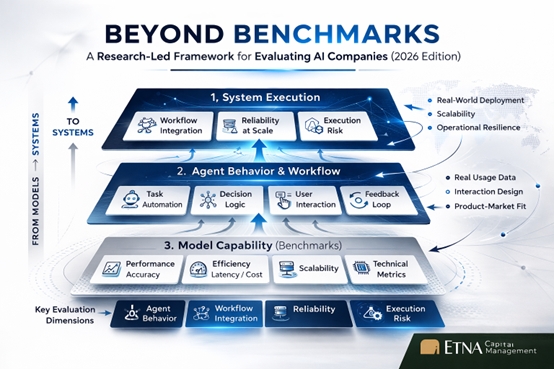Introduction
The global Predictive AI market is projected to witness substantial growth, with an anticipated worth of USD 108 billion by 2033. This growth represents a steady Compound Annual Growth Rate (CAGR) of 21.9% over the forecast period from 2024 to 2033. Predictive AI, also known as Predictive Artificial Intelligence, utilizes advanced algorithms and machine learning techniques to analyze historical data and forecast future events or outcomes. It is extensively applied across various industries to predict trends, identify risks, and optimize decision-making processes.
Several factors drive the growth of the Predictive AI market. These include the increasing availability of big data, advancements in AI technologies, and the rising demand for data-driven insights. Organizations are increasingly adopting Predictive AI solutions to gain a competitive edge, enhance operational efficiency, and foster innovation. Key investments by industry giants like Google AI and SoftBank further underscore the sector’s significance and potential for growth.
Key Takeaways
- The global Predictive AI Market is anticipated to reach a valuation of USD 108.0 billion by 2033, with a steady Compound Annual Growth Rate (CAGR) of 21.9% over the next ten years. In 2023, the market generated nearly USD 14.9 billion in revenue, projected to rise to USD 18.2 billion in 2024.
- The Global Artificial Intelligence Market size is expected to be worth around USD 2,745 billion by 2032, from USD 177 Billion in 2023, growing at a CAGR of 36.8% during the forecast period from 2024 to 2033.
- Major players like Google AI and SoftBank have demonstrated confidence in predictive AI through significant investments. Google AI’s ~$100 billion investment in responsible AI initiatives and SoftBank’s ~$3.5 billion fund for predictive AI startups underscore the sector’s significance, particularly in healthcare, climate change, and cybersecurity.
- Cloud-based solutions dominate the Predictive AI Market, capturing over 55% share. This dominance is attributed to the flexibility and cost-effectiveness of cloud-based deployments, enabling easier access to advanced computational power and AI capabilities.
- Software solutions hold over 63% share in the market, with key components like Time Series Analysis, Regression Analysis, Classification and Categorization, and Clustering leading the segment.
- Sales and Marketing lead in application segments with over 21% share, followed by Risk Management and Financial Forecasting.
- Machine Learning dominates with over 52% share, owing to its versatility and effectiveness across diverse applications. Natural Language Processing (NLP) and Deep Learning also play significant roles in specific niches.
- Large Enterprises capture over 65% share in the Predictive AI Market, leveraging their resources and expertise effectively.
- Banking, Financial Services, and Insurance (BFSI) capture over 21% share due to their reliance on data-driven decision-making and risk management.
- North America holds a dominant market position, with over 34% share, driven by advanced technological infrastructure and high adoption rates across various sectors.
- IBM Corporation, SAS Institute Inc., Microsoft Corporation, SAP SE, and Oracle Corporation are among the leading players shaping the Predictive AI Market landscape, contributing significantly to growth and innovation.
- 83% of enterprises that have adopted Predictive AI have experienced improved customer satisfaction, while 74% have reported increased revenue. This highlights the significant impact of Predictive AI on enhancing customer experiences and boosting financial performance.
- The integration of Predictive AI into supply chain management could lead to a 15% reduction in lost sales due to stockouts by 2024. This demonstrates the potential of Predictive AI to optimize inventory levels and minimize sales disruptions.
- Companies that use Predictive AI for sales forecasting achieve a 10% increase in forecast accuracy compared to traditional methods. This improvement in forecasting precision can lead to better decision-making and resource allocation.
- The adoption of Predictive AI in the healthcare industry could result in cost savings of up to $200 billion annually by 2024, through improved disease prevention and treatment optimization. This indicates the transformative power of Predictive AI in enhancing healthcare efficiency and effectiveness.
- The number of companies investing in Predictive AI solutions for cybersecurity is expected to grow by 38% in 2023, driven by the need for advanced threat detection and prevention. This growth reflects the increasing recognition of Predictive AI’s role in safeguarding digital assets.
- Predictive AI models can be used to forecast traffic patterns with up to 97% accuracy, enabling more efficient urban planning and transportation management. This high level of accuracy showcases the potential of Predictive AI to improve the quality of urban life by reducing congestion and enhancing mobility.
Build a Future-proof Business! Buy our Premium Insights at Affordable Prices Now
Emerging Trends
- Explainable AI: There is a growing demand for explainable AI models in predictive analytics. Businesses are seeking transparency and interpretability in AI algorithms to understand how predictions are made and gain trust in the decision-making process.
- Automated Machine Learning (AutoML): AutoML is gaining traction in the predictive AI market. It enables non-experts to build and deploy predictive models by automating the process of feature engineering, model selection, and hyperparameter tuning.
- Augmented Analytics: Augmented analytics combines AI and human intelligence to enhance predictive capabilities. It empowers business users with advanced analytics tools, natural language processing, and automated insights generation for predictive modeling and forecasting.
- Real-time Predictions: Real-time predictive AI is becoming increasingly important across various industries. Organizations are leveraging streaming data, IoT devices, and edge computing to enable real-time predictions and decision-making for immediate actions and responses.
Use Cases for Predictive AI
- Fraud Prevention and Financial Analytics: Predictive AI is being increasingly used to detect fraudulent activities and provide insights into financial analytics, helping organizations to secure operations and make informed decisions.
- Healthcare: In the healthcare sector, Predictive AI is instrumental in enhancing patient outcomes, optimizing operations, and supporting research and development activities.
- Retail Personalization and Inventory Management: Retailers are leveraging Predictive AI for personalized marketing campaigns, inventory management, and to forecast demand, thus optimizing their operations and enhancing customer experiences.
- Supply Chain Optimization: Predictive AI plays a crucial role in improving supply chain efficiency by forecasting demand, managing inventory levels, and identifying potential disruptions before they occur.
Major Challenges
- Data Quality and Accessibility: Ensuring high-quality, accessible data is a significant challenge, as the effectiveness of Predictive AI depends heavily on the data used for training and analysis.
- Integration with Existing Systems: Integrating Predictive AI technologies into existing IT infrastructures and workflows can be complex and requires significant investment in time and resources.
- Addressing Privacy and Security Concerns: As Predictive AI systems often process sensitive information, addressing privacy and cybersecurity concerns is crucial for gaining trust and ensuring compliance with regulations.
- Skill Gap and Talent Shortage: There is a notable gap in the skilled professionals required to develop, deploy, and maintain Predictive AI systems, challenging the growth and innovation in the field.
Market Opportunities for Predictive AI
- Industry-specific Solutions: There is a significant opportunity for predictive AI solutions tailored to specific industries, such as retail, manufacturing, energy, and transportation. Customized predictive models and applications can address industry-specific challenges and drive operational efficiencies.
- Predictive Maintenance: Predictive AI can revolutionize maintenance practices by accurately predicting equipment failures, optimizing maintenance schedules, and minimizing downtime. The predictive maintenance market presents substantial growth opportunities across industries.
- Customer Experience Enhancement: Predictive AI can enable personalized customer experiences by analyzing customer data, predicting preferences, and offering tailored recommendations. Businesses can leverage this opportunity to improve customer satisfaction and loyalty.
- Risk Management: Predictive AI can play a vital role in risk management by identifying potential risks, detecting anomalies, and enabling proactive mitigation strategies. The risk management market offers significant opportunities for predictive AI applications.
Recent Developments
- Microsoft (May 2023): Launched Azure Machine Learning enhancements for explainability and responsible AI.
- SAP (July 2023): Announced SAP Crystallographic AI, a new product for material science using machine learning.
- SAS (October 2023): Acquired Teradata, a data warehousing company, to bolster its cloud analytics offerings.
- Alteryx (December 2023): Partnered with Snowflake, a cloud data platform, to simplify data access for predictive analytics.
Conclusion
The Predictive AI market is characterized by rapid growth, driven by technological advancements, expanding use cases, and increasing demand across various industries. Despite facing challenges such as data quality and integration complexities, the market presents significant opportunities, especially in emerging markets and through the development of customized, industry-specific solutions. Recent developments and investments in the sector indicate strong confidence in the potential of Predictive AI to transform businesses and industries, making it a pivotal technology for the future






